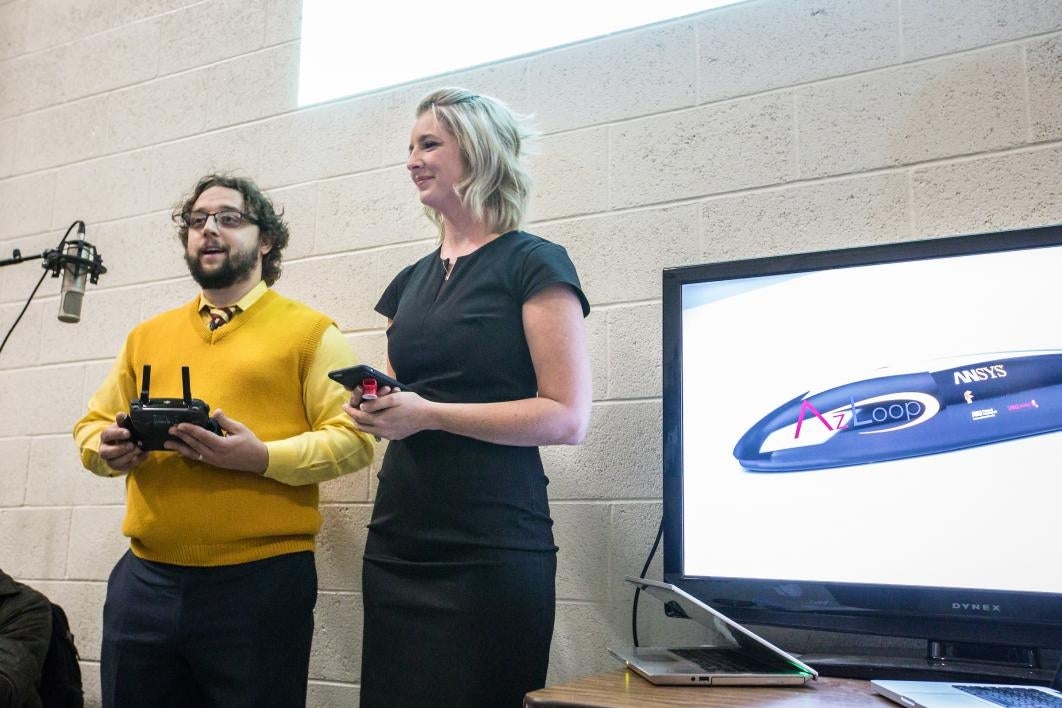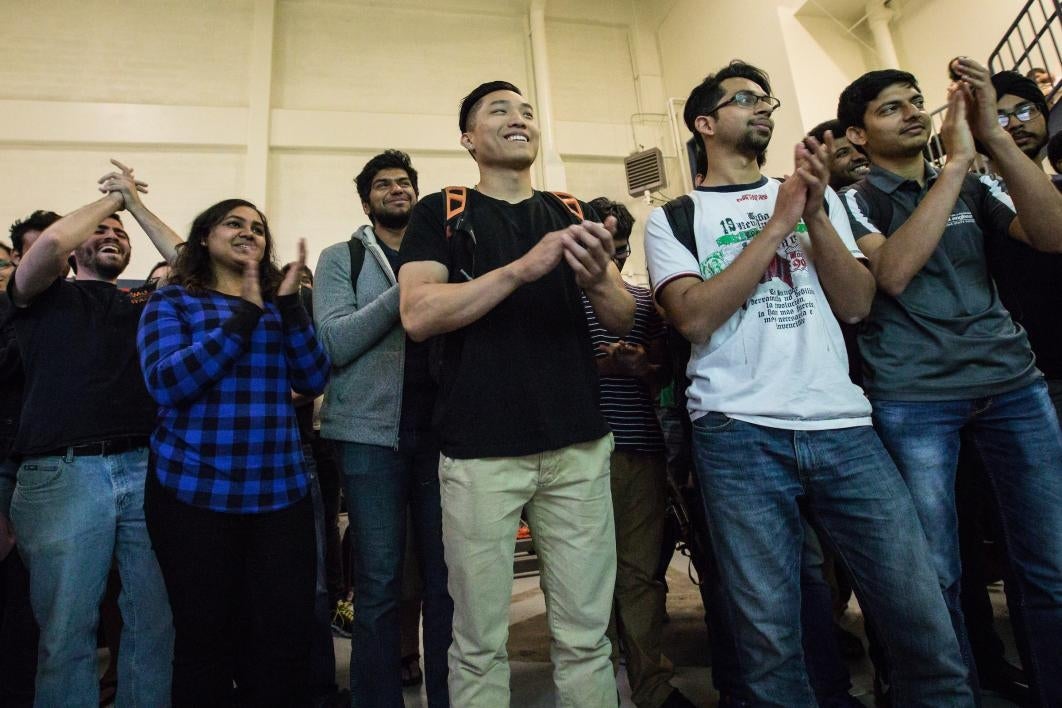Aerospace transportation and manufacturing firm SpaceX has selected an ASU-led team to advance in its worldwide Hyperloop competition, which aims to create a futuristic, regional transit system that hits speeds of up to 750 mph.
The SpaceX challenge invites college students to design and build transportation pods that zip through a tube-based track. Eventually, it could result in a travel network that gets users from Phoenix to San Diego in about 30 minutes, or from Los Angeles to San Francisco in less than an hour.
The field started with about 1,300 teams last year and has been narrowed to 24.
AZLoop leaders Lynne Nethken and Josh Kosar, students in the Ira A. Fulton Schools of Engineering, announced the selection to their team Friday night.
“We are very excited to let you know we’ve proceeded to the next round,” project lead Nethken said as the room erupted into applause and balloons dropped. “This has not been an easy project. There has been a lot of blood, sweat and tears.”
Video by Ken Fagan/ASU Now
More than 100 students are involved in AZLoop from an array of disciplines that include engineering, robotics, physics, astrobiology, marketing and business management. Aside from Arizona State University and its Thunderbird School of Global Management, students from Embry-Riddle Aeronautical University and Northern Arizona University are part of the group that meets each week at ASU’s Polytechnic campus.
SpaceX’s letter to the team said officials were “extremely impressed with your design and we’re excited to see what you build.”
AZLoop will now put together a full-size, half-mile test track. Organizers are discussing permitting with the city of Mesa.
Arizona State University President Michael Crow pledged his support in a video address. “You guys have got one of the ideas to go forward,” he said. “Good luck!”
Team leaders have said their marketing division has helped secure funding. To this point, ASU’s support has included lab space and prototype materials. Project co-lead Kosar has said, “we’ve got the resources.”
Construction on the test track is expected to begin at the end of May. It will take six weeks to build, Nethken said.
The first trial run could begin as early as mid-July.
The final round is set for judging in August. SpaceX is headquartered in Hawthorne, California, near Los Angeles.
“We are literally going to change the world by helping develop this technology, and that is something that not many people get to be a part of,” Nethken told the team. “It truly shows that ASU is the leader in innovation anywhere. Let’s win this!”
Photo: The mood was festive at ASU's Polytechnic campus Friday after members of AZLoop learned their team had been selected to advance in SpaceX's Hyperloop competition. Lynne Nethken, project lead and mechanical engineering graduate student at Arizona State University, talks through video chat with students from Prescott's Embry-Riddle Aeronautical University following the announcement. AZLoop is one of 24 finalist teams selected from a field that started with about 1,300 entries. Photo by Charlie Leight/ASU Now
More Science and technology

Ancient sea creatures offer fresh insights into cancer
Sponges are among the oldest animals on Earth, dating back at least 600 million years. Comprising thousands of species, some with lifespans of up to 10,000 years, they are a biological enigma.…

When is a tomato more than a tomato? Crow guides class to a wider view of technology
How is a tomato a type of technology?Arizona State University President Michael Crow stood in front of a classroom full of students, holding up a tomato.“This object does not exist in nature,” he…

Student exploring how AI can assist people with vision loss
Partial vision loss can make life challenging for more than 6 million Americans. People with visual disabilities that can’t be remedied with glasses or contacts can sometimes struggle to safely…



